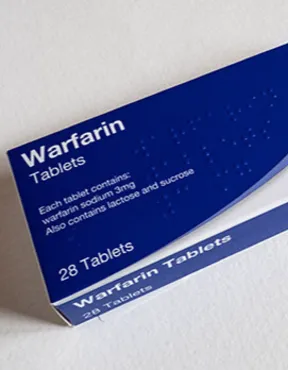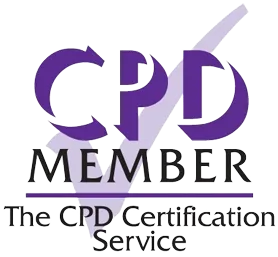28 Mar 2025
Recommended
Minimum 30 mins
Course
Access
Certification
Voiceover

The Anticoagulants and Other High-Risk Medicines Awareness course is designed to enhance the knowledge and skills of healthcare professionals involved in prescribing, administering, and monitoring high-risk medicines. These medications, including anticoagulants (e.g., warfarin, DOACs), cardiac drugs, NSAIDs, and anti-epileptics, pose a higher risk of causing significant harm if not managed appropriately.
This course offers a comprehensive overview of high-risk medicines, focusing on their mechanisms of action, therapeutic uses, and potential adverse effects. Participants will learn evidence-based practices for safe administration, therapeutic drug monitoring, and risk mitigation strategies. The training aligns with UK best practices, including NICE guidelines and local protocols, ensuring participants are well-equipped to manage these medications in clinical practice.
Emphasis is also placed on patient education, inter-professional collaboration, and adherence to legal and regulatory standards. By completing this course, participants will be better prepared to reduce the risk of adverse drug events, improve patient safety, and contribute to enhanced healthcare outcomes.

 £30
£30
Learning Outcomes.
By the end of this course,participants will be able:
To define high-risk medicines and understand their significance in patient safety and clinical care.
To identify the mechanisms of action, therapeutic applications, and potential risks of high-risk medications.
To recognise common adverse effects and implement strategies for risk mitigation.
To apply safe administration, monitoring, and handling practices for high-risk medicines in line with UK guidelines.
To manage anticoagulant therapies effectively, including dosing, monitoring, and perioperative considerations.
To educate patients on the safe use of high-risk medicines and collaborate with healthcare teams to optimise care.
Course
Contents.
01
Definitions, safety principles, and clinical relevance.
03
Therapeutic applications, monitoring needs, and adverse effects of medications such as beta-blockers and ACE inhibitors.
05
Seizure management, therapeutic drug monitoring, and addressing potential toxicities.
08
Storage, labelling, documentation, and adherence to legal standards.

06
Monitoring and managing risks associated with disease-modifying antirheumatic drugs.
09
Preventing medication errors, managing interactions, and implementing safety protocols.
02
Management of dosing, monitoring, and complications in therapies like warfarin and DOACs.
04
Mechanisms, risks, and recommendations for safe use.
07
Safe use, managing dependency risks, and monitoring patient outcomes.
10
Strategies for improving adherence and ensuring patient understanding of medication safety.
This course equips healthcare professionals with the expertise to manage high-risk medicines, including anticoagulants, effectively and safely. By focusing on evidence-based administration, monitoring, and patient education practices, participants will minimise risks and enhance patient outcomes. The course ensures compliance with UK guidelines and fosters a collaborative approach to medication safety in healthcare settings.
 Summary
Summary


